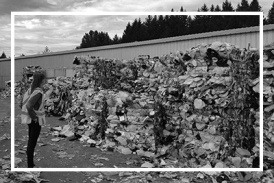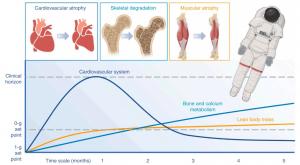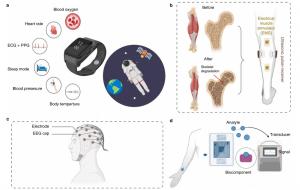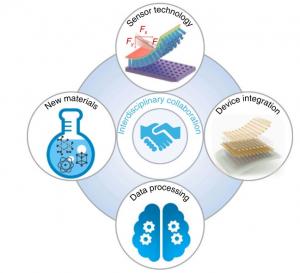How Flexible Wearables Protect Astronauts' Health in Space
HI, UNITED STATES, April 16, 2025 /EINPresswire.com/ -- In the harsh environment of space—where microgravity, cosmic radiation, and isolation pose unprecedented health risks—flexible wearable devices have emerged as critical tools. These "smart skins" continuously monitor astronauts' vital signs, revolutionizing space medicine.
A review published recently in Wearable Electronics examines the current applications and persistent challenges of flexible wearable technologies in aerospace medicine. As human space exploration progresses toward extended-duration missions, the imperative for real-time monitoring of astronauts' physiological and psychological well-being has become increasingly critical. The unique space environment characterized by microgravity conditions, cumulative radiation exposure, and extreme thermal fluctuations presents multifaceted health risks to crew members.
Flexible wearable systems, equipped with multimodal sensor arrays, enable comprehensive and continuous health surveillance. These integrated platforms include inertial measurement units, biosignal electrodes, and environmental detectors, among others. They have proven to be indispensable for early anomaly detection in cardiopulmonary functions, neuromuscular performance, and circadian rhythm regulation, thereby facilitating timely personalized countermeasures.
Nonetheless, despite recent advancements in materials science and miniaturized electronics, three notable technical barriers persist: 1) device reliability under combined space stressors, 2) secure data management protocols addressing confined spacecraft privacy concerns, and 3) multi-parametric data fusion challenges involving temporal-spatial synchronization of heterogeneous bio-signals.
Breakthrough development trajectories emphasize future research in the field of flexible wearable devices, particularly for astronaut applications, will focus on several key areas and their interdisciplinary collaborations. These research areas will cover advanced materials science, new materials and sensor technology, intelligent algorithms, data processing and device integration. Interestingly, the development of technologies in the field will still rely on material innovation, the creation of intelligent algorithms, the improvement of user experience and interdisciplinary cooperation. In particular, continuous development and maturity of the technology, together with flexible electronic devices, will play an important role in enhancing astronauts' health monitoring capabilities and promoting the progress of human space exploration in the future.
References
DOI
10.1016/j.wees.2024.12.007
Originlal Source URL
https://doi.org/10.1016/j.wees.2024.12.007
Funding information
This work was supported by the National Social Science Foundation of China (nos. 20BTY029 and 52003101), the Space Medical Experiment Project of CMSP (HYZHXMH01008) and the China Postdoctoral Science Foundation (2020M673052 and 2021T140270).
Lucy Wang
BioDesign Research
email us here
Legal Disclaimer:
EIN Presswire provides this news content "as is" without warranty of any kind. We do not accept any responsibility or liability for the accuracy, content, images, videos, licenses, completeness, legality, or reliability of the information contained in this article. If you have any complaints or copyright issues related to this article, kindly contact the author above.
Dialogue with Three Chords and brooklynONE Productions Celebrate Pride Month with Night of Original Theatre
Business Solutions Marketing Group Unveils AI Video Marketing Program: Propelling Small Businesses to Google Page ONE
Eylsia, Rising Filipina Pop Artist, Explores the Promise and Challenges of AI in Music
Kalendarium
Więcej ważnych informacji
 Jedynka Newserii
Jedynka Newserii

 Jedynka Newserii
Jedynka Newserii

Handel

Ze względu na różnice w cenach surowce wtórne przegrywają z pierwotnymi. To powoduje problemy branży recyklingowej
Rozporządzenie PPWR stawia ambitne cele w zakresie wykorzystania recyklatów w poszczególnych rodzajach opakowań. To będzie oznaczało wzrost popytu na materiały wtórne pochodzące z recyklingu. Obecnie problemy branży recyklingu mogą spowodować, że popyt będzie zaspokajany głównie przez import. Dziś do dobrowolnego wykorzystania recyklatów nie zachęcają przede wszystkim ceny – surowiec pierwotny można kupić taniej niż ten z recyklingu.
Przemysł spożywczy
Rośnie presja konkurencyjna na unijne rolnictwo. Bez rekompensat sytuacja rolników może się pogarszać

Rolnictwo i żywność, w tym rybołówstwo, są sektorami strategicznymi dla UE. System rolno-spożywczy, oparty na jednolitym rynku europejskim, wytwarza ponad 900 mld euro wartości dodanej. Jego konkurencyjność stoi jednak przed wieloma wyzwaniami – to przede wszystkim eksport z Ukrainy i niedługo także z krajów Mercosur, a także presja związana z oczekiwaniami konsumentów i Zielonym Ładem. Bez rekompensat rolnikom może być trudno tym wyzwaniom sprostać.
Transport
Infrastruktury ładowania elektryków przybywa w szybkim tempie. Inwestorzy jednak napotykają szereg barier

Liczba punktów ładowania samochodów elektrycznych wynosi dziś ok. 10 tys., a tempo wzrostu wynosi ok. 50 proc. r/r. Dynamika ta przez wiele miesięcy była wyższa niż wyniki samego rynku samochodów elektrycznych, na które w poprzednim roku wpływało zawieszenie rządowych dopłat do zakupu elektryka. Pierwszy kwartał br. zamknął się 22-proc. wzrostem liczby rejestracji w ujęciu rocznym, ale kwiecień przyniósł już wyraźne odbicie – o 100 proc.
Partner serwisu
Szkolenia

Akademia Newserii
Akademia Newserii to projekt, w ramach którego najlepsi polscy dziennikarze biznesowi, giełdowi oraz lifestylowi, a także szkoleniowcy z wieloletnim doświadczeniem dzielą się swoją wiedzą nt. pracy z mediami.











.gif)

 |
| |
| |
|